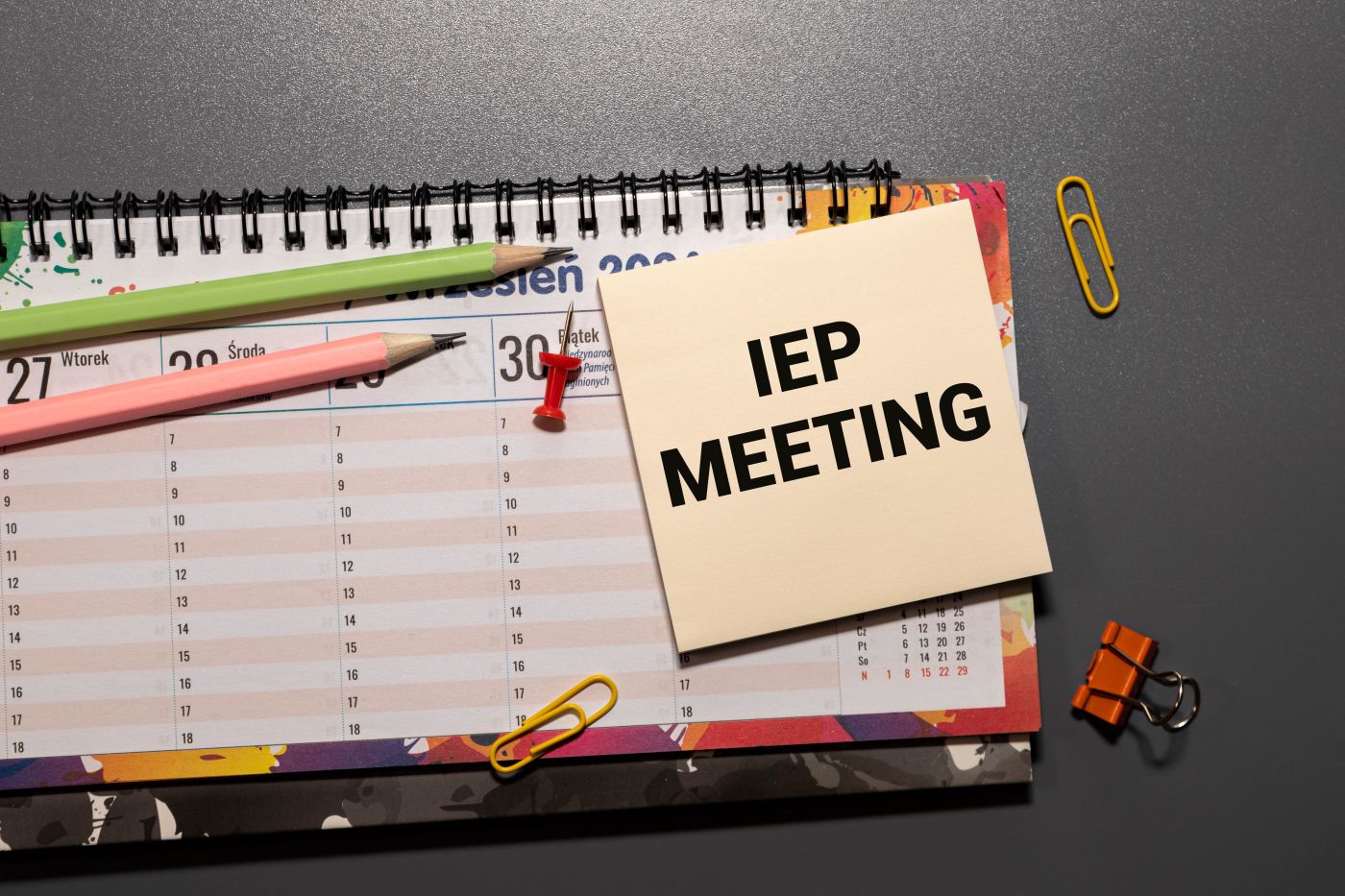The special education system can be challenging, especially relating to disciplinary actions.
Parents of children with disabilities often find themselves in a maze of complex policies, legal requirements, and educational jargon, all while trying to ensure that their child receives the support they need to succeed.
The stakes are high: missteps in handling disciplinary issues can lead to unfair penalties, interruptions in education, and long-term negative impacts on a child’s academic and social development.
This article delves into the critical aspects of special education discipline, highlighting the importance of legal assistance in safeguarding your child’s rights and ensuring that disciplinary measures are both fair and effective.
The Discipline Process for Special Ed Students
The discipline process for special education students is governed by a unique set of rules and regulations designed to protect their rights. These protections acknowledge that behaviors that might violate a school’s code of conduct can often be directly related to a student's disability. Therefore, the approach to discipline must be thoughtful, individualized, and compliant with federal laws such as the Individuals with Disabilities Education Act (IDEA).
The Importance of Individualized Education Program (IEP)
The cornerstone of special education services is the Individualized Education Program (IEP). This legally binding document outlines the educational plan for a student with disabilities, including the supports and services they require to succeed in school. The IEP is tailored to the student's unique needs and must be reviewed and updated regularly so it remains relevant and effective.
When disciplinary issues arise, the IEP becomes a critical tool in determining whether the student's behavior is a manifestation of their disability. This connection is evaluated during the manifestation determination review (MDR), which is a key procedural safeguard in the discipline process.
Manifestation Determination Review (MDR)
The MDR is a formal meeting involving educators, special education professionals, and the student's parents. During this meeting, the team reviews the student's IEP, teacher observations, and any relevant medical diagnoses to determine if the behavior in question is linked to the student's disability.
If the behavior is found to be a manifestation of the disability, the school cannot impose standard disciplinary measures, such as suspension or expulsion, without first addressing the needs identified in the IEP.
This process ensures that students are not unfairly punished for behaviors that are beyond their control. For instance, a student with an emotional disturbance might act out in ways that are disruptive to the classroom.
However, if these behaviors are related to their disability, the school must focus on adjusting the student's IEP and providing additional supports rather than simply removing the student from the educational environment.
Legal Protections Under IDEA
The Individuals with Disabilities Education Act (IDEA) provides several critical protections for students with disabilities. One of the most significant is the requirement that schools continue to provide educational services to students who are removed from their current placement due to disciplinary actions.
This means that even if a student is suspended or expelled, the school must make sure that they continue to receive the education necessary to progress towards their IEP goals.
IDEA also limits the length of time a student with disabilities can be removed from their educational placement without triggering additional safeguards. If a student is removed for more than ten consecutive school days, the school must hold an MDR to determine if the behavior is related to the student's disability. If it is, the school must take steps to adjust the IEP and provide appropriate supports to address the behavior.
Protecting Student Rights in Disciplinary Actions
The rights of students with disabilities are further protected by procedural safeguards that enforce fair treatment during disciplinary actions. These safeguards are designed to prevent schools from imposing unjust or inappropriate disciplinary measures without considering the unique needs of the student.
Procedural Safeguards and Parent Notifications
One of the key procedural safeguards under IDEA is the requirement that schools notify parents of any disciplinary actions that could lead to a change in the student's placement. This notification must include information about the procedural safeguards available to the student, ensuring that parents are fully informed of their rights and the steps they can take to protect their child’s educational interests.
In addition to notifications, parents have the right to request a due process hearing if they disagree with the school’s disciplinary decisions. During a due process hearing, parents can present evidence and arguments to challenge the school's actions. This process provides a check on the school’s authority, ensuring that disciplinary measures are not imposed without proper consideration of the student’s rights and needs.
Limitation on Disciplinary Removals
Another important protection under IDEA is the limitation on the length of disciplinary removals. Schools cannot remove a student with disabilities from their educational placement for more than ten consecutive school days without providing alternative educational services. This ensures that the student's education continues, even if they are removed from their regular classroom setting.
The Role of Behavior Intervention Plans (BIPs)
Behavior Intervention Plans (BIPs) are another critical component of the discipline process for special education students. A BIP is a personalized plan developed to address specific behavioral challenges that a student may face. It is based on a Functional Behavior Assessment (FBA), which identifies the root causes of the student's behavior and outlines strategies to address them.
The goal of a BIP is to provide positive behavioral support and interventions that help the student manage their behavior in a way that is conducive to learning. For example, if a student struggles with outbursts due to anxiety, the BIP might include strategies such as regular breaks, access to a quiet space, and reinforcement of positive behavior.
Legal Assistance in Special Education Discipline
Given the complexity of the laws and regulations governing special education discipline, legal assistance is often necessary in ensuring that students' rights are protected. Legal professionals who specialize in special education law can provide invaluable support to parents getting through the discipline process.
The Role of Legal Advocates in MDRs
Legal advocates can play a role in the MDR process by ensuring that all relevant information is considered and that the student’s rights are upheld. I to conduct a thorough review of the student’s IEP or overlooks key medical diagnoses, a legal advocate can challenge the findings of the MDR and argue for a more appropriate course of action.
In cases where the MDR determines that the behavior was not a manifestation of the student’s disability, legal assistance can be critical in challenging this conclusion. Advocates can present evidence that was not adequately considered during the MDR, such as additional medical records or expert testimony, to support the argument that the behavior was indeed related to the student’s disability.
Challenging Disciplinary Actions
Legal professionals can also assist in challenging disciplinary actions that may be unjust or inappropriate. If a school imposes a suspension or expulsion without properly considering the student's IEP or BIP, legal advocates can file a complaint or request a due process hearing to contest the decision.
During a due process hearing, legal advocates can present evidence, call witnesses, and argue on behalf of the student to make sure that their rights are protected.
Ensuring Compliance with Procedural Safeguards
Legal assistance is also important in ensuring that schools comply with all procedural safeguards during the discipline process. This includes ensuring that parents receive proper notification of disciplinary actions, that the MDR is conducted appropriately, and that alternative educational services are provided when necessary.
If a school fails to adhere to these procedural safeguards, legal advocates can take action to hold the school accountable. This might involve filing a complaint with the state education agency, requesting a due process hearing, or pursuing other legal remedies.
Addressing Systemic Issues in Special Education Discipline
In addition to addressing individual cases, legal assistance can be instrumental in challenging systemic issues within a school or district’s approach to special education discipline. Disproportionate discipline of students with disabilities is a significant concern, and legal advocates can help identify and address patterns of discrimination or bias.
Identifying Patterns of Discrimination
Disproportionate discipline refers to situations where students with disabilities are disciplined at higher rates or more severely than their non-disabled peers. This can occur due to a lack of understanding of the student’s disability, inadequate training for educators, or systemic biases within the school’s disciplinary policies.
Legal advocates can analyze disciplinary data to identify patterns of disproportionate discipline and work with parents to challenge these practices. This might involve filing complaints with the Office for Civil Rights, requesting state or federal investigations, or pursuing legal action to address discriminatory practices.
Promoting Systemic Change
Legal advocacy can also drive systemic change by pushing for reforms in how schools handle discipline for students with disabilities. This might include advocating for better training for educators on the needs of students with disabilities, promoting the use of positive behavioral interventions, and pushing for changes in school policies to reduce reliance on punitive measures.
By addressing these systemic issues, legal advocates can help create a more equitable educational environment for all students. This not only benefits individual students but also contributes to broader changes that improve the educational experience for students with disabilities across the board.
School Discipline Procedures
While legal assistance is invaluable, parents also play a critical role in school discipline procedures. Being proactive, informed, and organized can make a significant difference in ensuring that your child receives fair treatment.
Keeping Detailed Records
One of the most effective ways to protect your child's rights is to keep detailed records of all interactions with the school regarding disciplinary issues. This includes saving copies of all correspondence, such as emails, letters, and disciplinary notices, as well as notes from phone calls or meetings with school officials.
In addition to documenting communications, parents should keep copies of their child’s IEP, BIP, and any related medical or psychological assessments.
Regular Communication with School Officials
Establishing regular communication with your child's teachers, special education coordinators, and school administrators is important for preventing misunderstandings and ensuring that everyone is working together to support your child's education.
If your child receives a disciplinary notice, it is important to request a meeting with school officials as soon as possible to discuss the situation. During this meeting, you should ask for a detailed explanation of the incident and how the school plans to address it. Be sure to emphasize the importance of adhering to your child's IEP and BIP.
Your Legal Rights
Parents should also take the time to familiarize themselves with the key laws and regulations that protect their child's rights, such as IDEA and Section 504 of the Rehabilitation Act. Understanding these laws can provide a solid foundation for advocating for your child's rights and ensuring that the school complies with all legal requirements.
In situations where you are unsure of your rights or the proper course of action, seeking legal assistance can provide clarity and guidance. Legal professionals can help you manage the complexities of special education law
Addressing Behavior and Discipline Through Special Education Services
Behavioral challenges in students with disabilities should be addressed through a well rounded approach that includes both preventive and responsive strategies. Special education services, such as Behavior Intervention Plans (BIPs), counseling, and social skills training, are all components of this approach.
The Development and Implementation of BIPs
A Behavior Intervention Plan (BIP) is a customized plan designed to address a student’s specific behavioral challenges. It is developed through a Functional Behavior Assessment (FBA), which identifies the triggers and causes of the student's behavior.
The BIP outlines specific strategies and interventions to help the student manage their behavior in a positive and constructive way. For example, a BIP might include techniques for de-escalating conflicts, providing the student with a quiet space to calm down, or reinforcing positive behaviors with rewards or praise.
Collaboration in BIP Development
The development of a BIP should be a collaborative process involving the student’s parents, teachers, special education professionals, and any other relevant stakeholders. Parents, in particular, bring invaluable insights into their child’s behavior and can provide information about what strategies have been effective at home.
Regular monitoring and updating of the BIP are essential to its success. As the student’s needs and behaviors change, the BIP should be adjusted accordingly. Legal assistance can be instrumental in ensuring that the BIP is faithfully implemented and that the school follows through on its commitments.
Incorporating Additional Supports in the IEP
In addition to the BIP, other supports such as counseling, social skills training, and academic interventions can be incorporated into the student’s IEP to address behavior and discipline issues.
For example, counseling sessions can help the student develop coping strategies and express their feelings in a constructive way. Social skills training can teach the student how to interact with peers and adults in a positive manner.
The Critical Role of Legal Assistance in Special Education Discipline
Legal assistance is can help ensuring that disciplinary actions are fair, legally compliant, and supportive of the student's educational needs. Legal professionals who specialize in special education law can provide invaluable support in managing the discipline process.
Legal Representation in Disciplinary Disputes
When disputes arise over disciplinary actions, legal representation can make a significant difference in the outcome. Legal advocates can challenge disciplinary decisions that do not align with the student's IEP or that fail to consider the student's disability. They can also represent the student in due process hearings, where they can present evidence and argue for a more appropriate course of action.
Ensuring Compliance with Procedural Safeguards
Legal professionals can also confirm that schools comply with all procedural safeguards during the discipline process. This includes verifying that parents receive proper notification of disciplinary actions, that the MDR is conducted appropriately, and that alternative educational services are provided when necessary.
If a school fails to adhere to these safeguards, legal advocates can take action to hold the school accountable. This might involve filing a complaint with the state education agency, requesting a due process hearing, or pursuing other legal remedies to protect the student's rights.
Addressing Systemic Issues and Promoting Change
Beyond individual cases, legal assistance can be instrumental in addressing systemic issues within a school or district’s approach to special education discipline. Legal advocates can identify patterns of disproportionate discipline and work to challenge these practices, promoting more equitable treatment for all students.
By advocating for systemic change, legal professionals can help create a more inclusive and supportive educational environment that benefits all students, not just those involved in specific disciplinary disputes. This broader focus on equity and justice underscores the critical role of legal assistance in special education.
Wrapping Up
The disciplinary processes in special education requires an understanding of both the legal framework and the specific needs of the student. Legal assistance plays a vital role in ensuring that students with disabilities are treated fairly and that their educational rights are protected. By staying informed, maintaining open communication with the school, and leveraging legal expertise, parents can advocate effectively for their children, ensuring that disciplinary measures are constructive and supportive.
Advocates for the Voiceless in Riverdale Park, Maryland, offers legal services tailored to the needs of vulnerable populations, including those dealing with special education challenges.
Moreover, embracing legal assistance equips you with the knowledge to advocate effectively for educational provisions that align with your child’s unique needs. Engaging services that focus on vulnerable populations can significantly enhance your ability to confirm compliance with educational standards and implement constructive behavioral interventions.
Discover more about how we can support you by visiting our website or contacting us at info@a4v.org.
For direct assistance, reach out to us.
By partnering with us, you can make sure that your child’s educational journey is supported, equitable, and reflective of their rights and needs.




